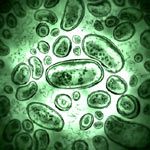
Sickness can be caused by inadequate domestic or personal hygiene. Not cleaning the toilet, not getting rid of rubbish, not washing clothes and bedding frequently, and not storing food properly are some examples of poor domestic hygiene.
Here are five of the biggest culprits when it comes to spreading harmful bugs in your home and simple steps you can take.
Kitchen cloth or sponge
PROBLEM: It’s full of tiny food particles from last night’s dinner and it’s always damp – the perfect environment for bacteria to breed in.
REMEDY: Always rinse the cloth or sponge after use and keep it in a place where it can dry. Make sure it is in good condition. Old sponges and cloths retain more moisture and dirt.
An effective strategy is to microwave cloths for 30 seconds to kill bacteria.
Cutting Boards
PROBLEM: Boards used to chop meat, fish and poultry can quickly breed dangerous salmonella if not looked after or cleaned.
REMEDY: It’s a good idea to use one board for vegetables and one for meat. It’s not enough to just wipe a board because bacteria can be trapped in the cuts and scratches in the board. Always wash after use and scrub with hot, soapy water and don’t forget the sink and benchtops. Any boards with deep grooves or cracks should be replaced.
Toothbrushes
PROBLEM: Toothbrushes carry bacteria from inside our mouths. Often they are stored next to other toothbrushes in a holder, or left to lie near sinks on wet benchtops where they can pick up bacteria.
REMEDY: Brushes should always be washed thoroughly, in hot water if possible, shaken and left to dry in a place where they can’t be splashed with dirty water.
Glasses, phones, remote controls
PROBLEM: All the items in your house that are handled can carry bacteria, perhaps from someone who has just sneezed, changed the pet litter or put out the garbage.
REMEDY: Wash your hands whenever you have come into contact with germs. If your hands are clean, you are less likely to pass on germs.
Pets
PROBLEM: Pets carry bacteria from playing, walking and eating outside.
REMEDY: Keeping your pets clean with regular brushing and bathing will reduce the germs they bring inside. Again, wash hands after emptying litter trays, just as you would after using the toilet.
The key to good hygiene is making sure germs don’t get the chance to multiply around the house, either on surfaces that everyone shares or by being passed from person to person. Scrubbing with lots of soapy water will ensure that bugs are lifted and flushed away. Soap or a good detergent is all you need.
Some household products contain antibacterial agents. These cleaning products are no more effective at preventing infection in the home than good personal and household hygiene using ordinary soap, warm water and plain detergent. Consumers should avoid using these products unless they have a specific medical reason to do so.
While these ingredients are valuable in hospitals and other healthcare settings, their effectiveness could be compromised by unnecessary domestic use. Their widespread use in the home could make some bacteria resistant to these antibacterial substances.
The overuse of antibacterial cleaning products in the home may be producing strains of multi-antibiotic-resistant bacteria. Bacteria that are resistant to many antibiotics are known as multi-resistant organisms (MROs).
Media advertisements press the point that bacteria in the home are harmful and must be eliminated by using any number of the antibacterial or antimicrobial products available.
These cleaning products are no more effective at preventing infection in the home than good personal and household hygiene using ordinary soap, warm water and plain detergent. Consumers should avoid using these products unless they have a specific medical reason to do so.
Numerous household products contain antibacterial agents
Antibacterial and antimicrobial products are everywhere. They include:
- Soaps and detergent
- Hand lotions
- Disinfectants
- Window cleaners
- Cleaning cloths
- Surface sprays
- Mouthwashes
- Toothpastes
- Garbage bags and plastic wrap
- Textiles, carpet underlay and swimming pool liners.
Many of these products contain antibacterial agents such as triclosan. These ingredients are valuable in hospitals and other healthcare settings but their effectiveness could be compromised by unnecessary domestic use. Their widespread use in the home could make some bacteria resistant to these antibacterial substances.
Environmental risks
Antibacterials such as triclosan can enter the environment and may accumulate in the food chain over time. Because of this, the national regulatory authority has decided to reassess their potential to constitute an environmental hazard. This review is currently still pending.
Cleaning products may contribute to antibiotic resistance
There is some evidence that the use of antibacterial and antimicrobial cleaning products – combined with the overprescription of antibiotics – may produce strains of bacteria that are resistant to disinfectants and antibiotics. There are several issues involved:
- There may not be enough of the antibacterial or antimicrobial agent in these cleaning products to destroy bacteria completely
- When exposed to antibacterial or antimicrobial cleaning products, most bacteria will die but some may survive and multiply. These strains can become resistant to antibiotics and disinfectants.
- Resistant strains of bacteria can lead to increased infection risk in the community, and in hospitals and other healthcare settings.
- Disinfectants are often not used correctly: for example, they are not mixed according to the manufacturer’s instructions (more is not better).
Most bacteria are beneficial
Most bacteria actually help humans. For example, intestinal bacteria help us to digest food. The ‘good’ bacteria that naturally live on, and inside, our bodies help us stay healthy by keeping the numbers of ‘bad’, disease-causing bacteria under control.
When you use antibacterial or antimicrobial cleaning products, good bacteria are also killed. This could be harmful if the ratio of good to bad bacteria is disturbed, and bad bacteria get the upper hand.
Soap and water is just as effective
Healthy households do not need these products. Effective hand washing with soap and household cleaning using warm water and a plain detergent is the cheapest way to get rid of germs. Avoid antibacterial or antimicrobial products; they are more expensive, no more effective at cleaning and their widespread use may pose a wider health risk.
The link to allergies such as asthma and rhinitis
Researchers have suggested that the Western obsession with cleanliness may be partly responsible for the increase in allergic asthma and conditions such as rhinitis (inflammation of nasal membranes).
The researchers suggest that some exposure to certain microbes (such as from faeces or the environment) may actually help regulate the immune system. This exposure may reduce the body’s tendency to develop an allergic reaction against common allergens.
This is based on the observations that growing up in a large family, being in child care from a young age and living with household pets seem to reduce the chances of developing allergic disease.
It should be noted, however, that a study across 12 European countries found no relation with the use of household cleaning products and asthma, hayfever and eczema. This is not surprising, as the actual cleanliness of homes has probably changed little despite the use of these newer cleaning agents.
More research into this area is needed but current understanding seems to suggest that the immune systems of children may need some exposure to bacteria and other microbes in order to function at their best.
In other words, a little dirt never hurt anyone. We should target our hygiene practices to the areas of greatest risk, such as washing hands after going to the toilet and before handling food.
How to reduce the effects of harmful bacteria
Food poisoning is a major health risk. Around 11,500 Australians are affected by food poisoning every day. This is caused by poor food storage, preparation and handling. To reduce this risk, you should:
- Wash and dry your hands after going to the toilet, blowing your nose and before handling food – especially between handling raw and cooked food.
- Use disposable paper towels to dry your hands rather than cloth towels, since the bacteria can survive for some time on objects.
- Keep cold food cold (below 5°C) and hot foot hot (above 60°C) to discourage the growth of bacteria.
- Store raw foods below cooked foods in the refrigerator.
- Use separate utensils for raw and cooked foods.
- Clean the toilet and bathroom regularly, especially the toilet seat, door handles and taps.
- Clean surfaces of baby change tables every day or more often if they are dirty.
Where to get help
- Your doctor
- Local government (council) health department
- Maternal and Child Health centre
Things to remember
- Evidence suggests that the use of antibacterial and antimicrobial cleaning products – particularly in combination with the overprescription of antibiotics – may produce strains of multi-resistant organisms.
- Antibacterial and antimicrobial cleaning products are no better at eliminating bacteria than cheaper plain soaps, detergents and warm water.
- Consumers should avoid using antibacterial and antimicrobial cleaning products unless they have a specific medical reason and have been advised to do so by their doctor.
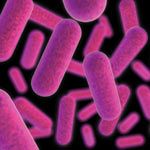
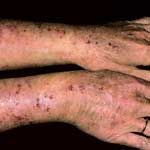
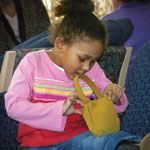


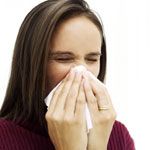
Comments are closed.